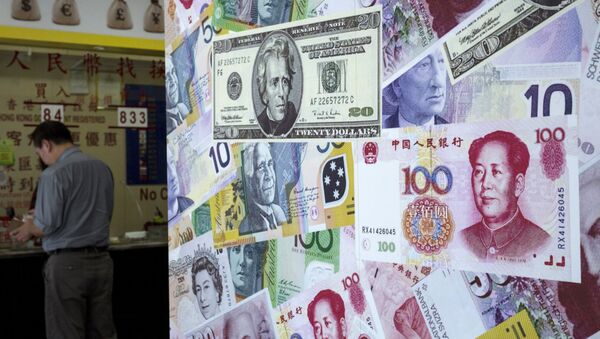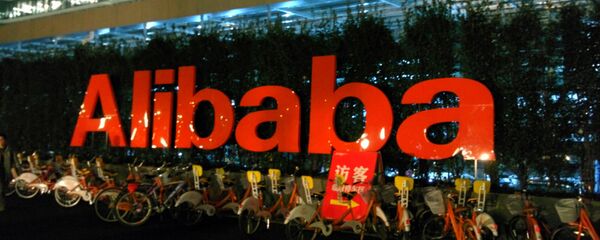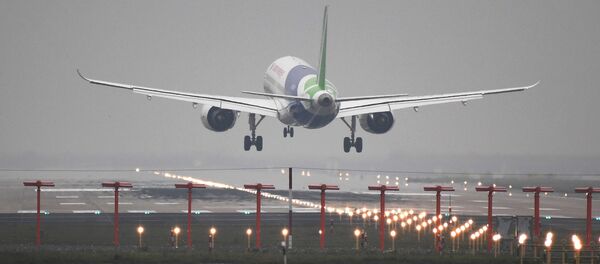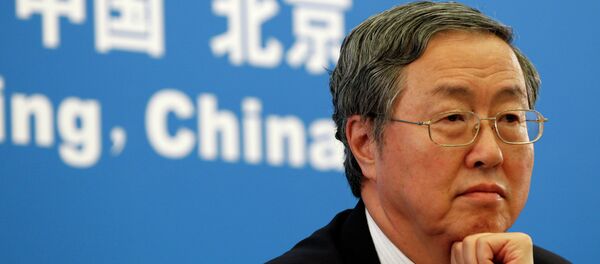As the general manager of Moronni International, a company with both European and Chinese branches that mainly sells cosmetics and fragrances, Arriaga traveled several hours to Frankfurt from the company's Dutch headquarters to participate in the meeting hosted by Netease Kaola, one of China's leading e-commerce companies.
"I'm interested in entering the Chinese market, which is huge," she told the Global Times.
Arriaga is contemplating collaboration with China's e-commerce platforms to promote Moronni, which has an office in Southwest China's Chongqing Municipality, to Chinese customers.
"Products that are recognized in our country may not get recognition in China. I want to know how the platform can do promotion for us," Arriaga said.
Like Arriaga, every one of the more than 60 European companies participating in that day's event showed great interest in selling products in China. Compared with the sluggish European economy, China's rising middle class and demand for consumer goods are a tempting prospect.
Four companies signed contracts with Kaola that day but most are still on the fence. Despite the large market potential they see, brand promotion, changing government policies as well as quality control all pose obstacles in their way.
Catching up
Over the past five years, as China's Internet sector has bloomed, companies from the US and South Korea have taken the initiative to cooperate with e-commerce firms to export their goods.
Japan joined this trend after seeing Chinese tourists flood into the country to go on shopping sprees. In comparison, European companies are more reserved. They are cautious about trying new things and prefer to stay in their comfort zone, said Zhang Lei, CEO of Netease Kaola.
But China's huge market has an irresistible appeal. Seeing the huge profits made by other countries' firms, they have started to overcome their conservatism.
According to Kaola, this year some European companies took the initiative to propose cooperation with the platform, for the first time.
Sonja Müller, director of the China Competence Center and the East Asia, Frankfurt am Main Chamber of Commerce, said that most goods exported from Europe to China used to be for industrial use but an increasing proportion is now for individual use.
In March, German supermarket chain Aldi officially landed on Chinese e-commerce platform Tmall. Wal-Mart is also cooperating with e-commerce giant JD.com to bring British supermarket brand Asda to the Chinese market.
In the recent partnership meeting, Kaola announced that it will purchase no less than 3 billion euro ($3.3 billion) of goods from Europe.
"Our target customers are China's middle class, who number over 100 million. They are leading the consumption upgrade. Also, their lifestyle is closely linked to the Internet," said Zhang.
A commentary published on news portal sohu.com pointed out that the Chinese middle class' shopping preferences are now driven primarily by quality.
They have long dropped the mentality of the planned economy period when commodities were scarce. But their demand for quality has not yet been met as the domestic market is filled with cheap, low-quality products. So they have to spend more money on imported foreign products to get the lifestyle they want, said the article.
So far German products are the best sellers on China's e-commerce websites among European countries, followed by French goods.
"Under the potential threat of global trade protectionism, it's important for Germany to strengthen its trade relationship with China," said Yao Ling, deputy director with the Chinese Academy of International Trade and Economic Cooperation.
A spokesman from the Ministry of Commerce also stressed that China is not pursuing a surplus in its commodity trade with Europe.
But it's not only e-business giants making money from European imports, under the "Belt and Road Initiative," the Chinese government in January launched its first freight train to London from Yiwu West Railway Station, East China's Zhejiang Province. The 12,000-kilometer journey takes about 18 days and crosses countries including Kazakhstan, Russia, Germany and France before arriving in the United Kingdom. The trains carry Chinese goods to Europe and bring back products such as milk powder, pork and cosmetics.
Remaining obstacles
Success can pose difficulties, however. In the partnership meeting hosted by Kaola, some European companies expressed concerns that it will be difficult for them to balance quality and quantity in the face of booming demand.
The representative of a German company said that the size and choosiness of the Chinese market may make it difficult for his firm to ramp up production quickly enough to meet demand and maintain their product's quality at the same time.
Arriaga told the Global Times that one of the most difficult things about working with e-commerce websites is how to effectively control quality.
Zhang said that Kaola directly purchases products from manufacturers to guarantee authenticity and they have a quality control center to monitor what they sell. On Tmall, where firms directly sell their own products to buyers, there are strict rules on people selling fake products. Serious violators will see their shops permanently closed.
Still, a simple search of e-commerce websites turns up apparently imported products which claim to be the real thing but are on sale for suspiciously cheap prices.
Li Zhao, Greater China CEO of the Eurocomfort Group, said that China's counterfeiting issue is a problem. Eurocomfort is Germany's largest home textile company.
According to Zhang, Kaola has set up branches in different countries and regions to monitor the whole import process from purchasing goods to transportation, and it cooperates with top-notch logistics companies. The company has also set up a team to review the qualifications of its suppliers.
Besides the issue of knockoffs, changing government policies have brought uncertainty to cross-border e-commerce. Starting from April 8, 2016 a new tax was placed on imports, dealing a huge blow to e-commerce websites who were enjoying fast development back then.
According to the new regulation, goods purchased by individuals from abroad will be taxed as imports, rather than personal postal articles, for the first time.
However, there will now be a 20,000 yuan annual limit on individuals' cross-border purchases over which goods will be taxed at the general trade rate.
This policy has hit cross-border e-commerce platforms hard are some are still trying to recover from its impact.
In the Global Times' interviews with European companies, many said that promoting their brands in China has proved to be a difficult task.
Li Jing said that most German companies are focused on improving their manufacturing techniques and expertise but are poor at promoting themselves.
"In China, without enough promotion the brand will lack influence. So it still takes time for both sides to communicate on this aspect and also learn how to provide better after-sales services," she said.
Many European companies are overly cautious about the Chinese market. Without grasping the enormous potential on offer, they aren't willing to devote more personnel and resources to Chinese market.
To help those companies, e-commerce platforms have made efforts such as organizing live streaming shows and inviting celebrities to China to promote certain products.
This article was written by Xie Wenting and was originally published in the Global Times.









